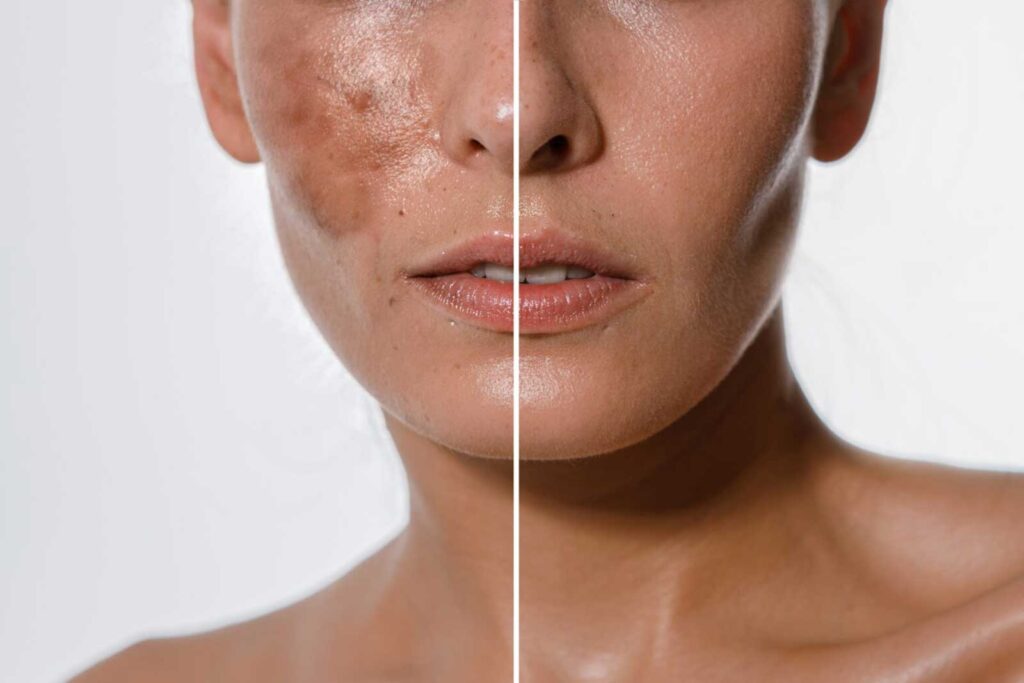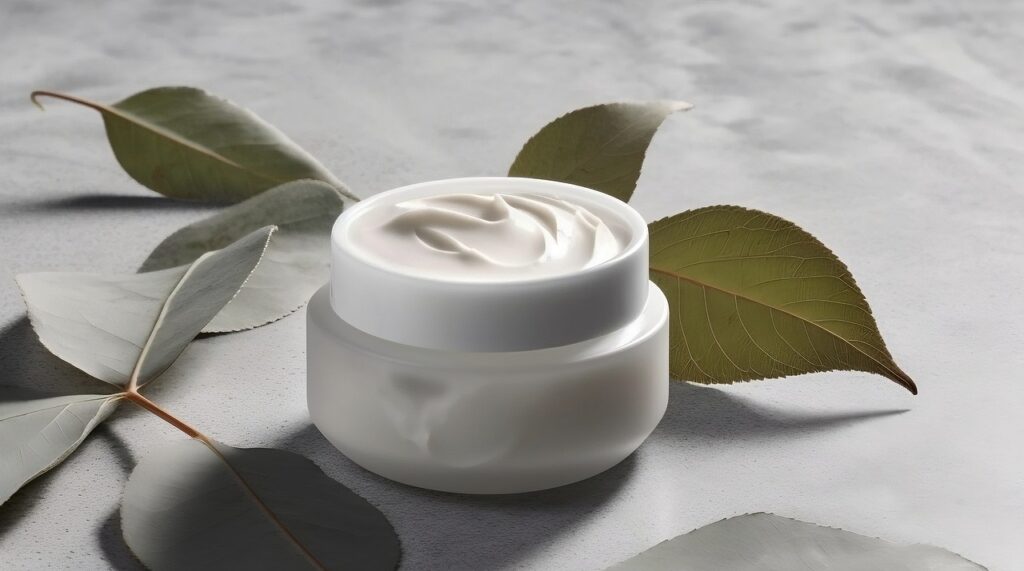Melasma, a common skin concern among Australians, can be a persistent and frustrating issue to deal with. Hydroquinone is a topical skin-lightening agent commonly used to treat hyperpigmentation, including conditions like Melasma. It works by inhibiting the activity of an enzyme called tyrosinase, which plays a key role in the production of melanin, the pigment responsible for the colour of our skin. Hydroquinone has been proven effective in the treatment of post inflammatory pigmentation and Melasma.
Most commonly compounded by pharmacies as:
- Hydroquinone 5% Cream
- Hydroquinone 5%, Glycolic 5% Cream
- Hydroquinone, Hydrocortisone
- Can be compounded together with other actives for pigmentation such as Kojic acid, Arbutin, Vitamin C, Niacinamide,
- Tranexamic, Azelaic, and Vitamin E
So, How Exactly Does Hydroquinone Help with Post Inflammatory Pigmentation and Melasma?
Here are four ways in which hydroquinone helps reduce the symptoms of hyperpigmentation.
- Inhibition of Melanin Production: Melanin is produced in the skin through a series of enzymatic reactions involving tyrosinase. Hydroquinone inhibits the activity of tyrosinase, which reduces the formation of melanin. This leads to a lightening of the skin over time.
- Disruption of Melanin Synthesis: Hydroquinone disrupts the synthesis of melanin by acting on melanocytes, the cells responsible for producing melanin. By interfering with the melanin production process, hydroquinone helps to lighten dark spots and even out skin tone.
- Decreased Transfer of Melanin to Skin Cells: Hydroquinone may also inhibit the transfer of melanin from melanocytes to surrounding skin cells. This prevents the dark pigment from spreading to nearby areas and contributes to a more uniform skin tone.
- Exfoliation of Pigmented Skin: Hydroquinone can have a mild exfoliating effect, promoting the shedding of pigmented skin cells. This helps to reveal new, lighter skin cells and further contributes to a more even complexion.
It’s important to note that while hydroquinone is effective, its use should be approached with caution. Prolonged or excessive use of high concentrations of hydroquinone can lead to side effects such as skin irritation, redness, and a condition called Ochronosis, characterised by bluish-black discolouration of the skin. Therefore, it’s recommended to use hydroquinone under the guidance of a dermatologist and to follow their instructions regarding concentration, duration of use, and any necessary precautions. Additionally, it’s crucial to use sun protection (sunscreen) during and after hydroquinone treatment, as the skin becomes more sensitive to UV radiation during the lightening process.
For more skincare tips and compounding insights, visit My Skin Magazine, the offical blog of My Skin Compound Pharmacy.

Lane Khin, the compounding pharmacist of My Skin Pharmacy, brings a wealth of knowledge from the worlds of pharmacy and dermatology to the table. With degrees in Pharmacy and Applied Science from QUT, Lane combines a deep understanding of compounding and skincare with a friendly, accessible approach. Through My Skin Magazine, Lane shares her expertise, offering readers practical advice and insights into personalised skincare solutions. Lane has a real passion for helping others achieve their best skin.


